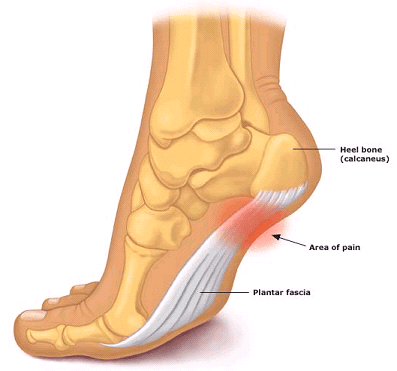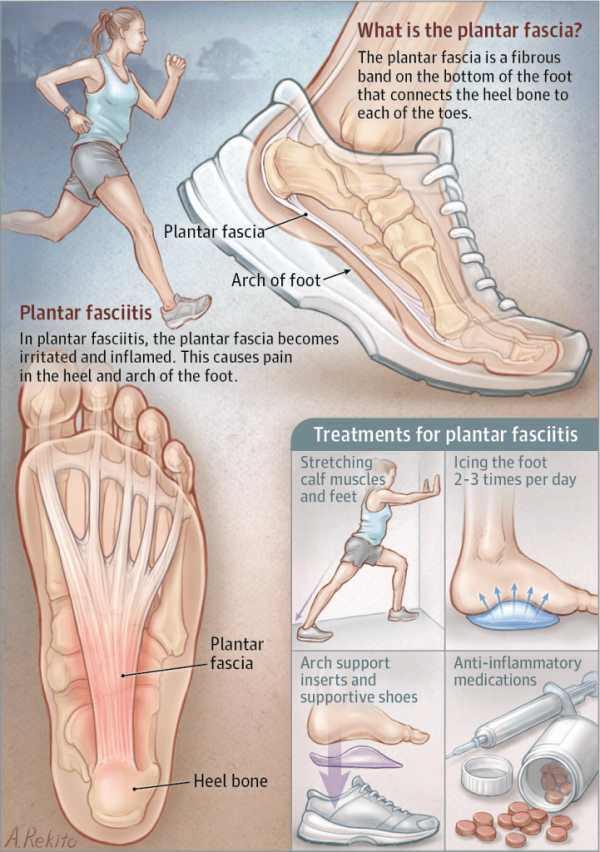Plantar fasciitis is the inflammation of the plantar fascia ligament found at the bottom of the foot.
Plantar Fasciitis

What is it?
What causes it?
The plantar fascia is a ligament that forms the foot’s arch that can stretch to certain lengths and allow some ankle movements. Plantar fasciitis occurs when the ligament is overstretched, overused or due to a medical condition.
Some of the risk factors for plantar fasciitis include:
- Sports that strain the arch such as running, long walking or aerobics
- Use of unsupportive footwear with little to no arch support such as flat shoes
- Being middle-aged or old-aged
- Being overweight
- Pregnancy
Symptoms
Here are some of the common symptoms of plantar fasciitis:
Pain in the heel or arch of the foot
- Pain when starting to walk after periods of rest (e.g. after sitting or waking up in the morning)
- Pain when walking barefoot on hard surfaces
- Mild swelling under the foot
- Difficulty standing, walking or running
Diagnosis
- You will be asked about your symptoms and how they started. Other questions will include those to eliminate other injury/disease.
- A physiotherapist will look at the location of pain, movement of your ankle and strength of your muscles to see how your symptoms affect you.=
An x-ray or ultrasound may be requested to confirm the diagnosis.
Treatments
- Pain relief medication
- A physiotherapist will direct to specific stretching exercises to relieve the strain on the foot arch.
- Orthotics including arches and heel pads for your shoes may be recommended to support your arches.
- A steroid injection may be recommended for severe cases.
- Surgery is also for severe cases.
How long until I get better?
Early treatment of plantar fasciitis means further damage is avoided and the condition does not become chronic.
Tips and Tricks
While seeking medical treatment, there are activities you can do to ease the pain and hasten the healing process. Some of these activities include:
- Rest the feet as much as possible.
- Stretch your calf during breaks to reduce the strain on the arch.
- During the first 2-3 days, apply ice directly on the heel twice or thrice a day to temporarily relieve pain and reduce inflammation.
- Take regular breaks when prolonged standing, walking or running is unavoidable.
Prevention
- Wear shoes that have heel cushioning and arch support.
- Maintain a healthy weight.
- Do regular calf stretches.
For all your Plantar Fasciitis needs, feel free to give us a call on 02 9793 8840 or Book Online

New Client Offer - 10% OFF
Are you in pain? Not sure if we can help you?
Book your initial appointment and receive 10% off any service!
